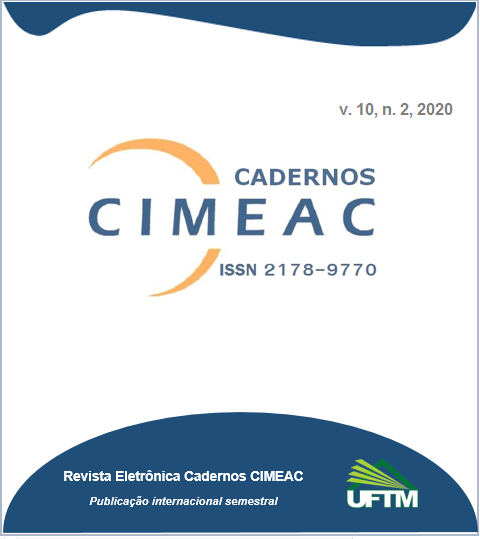A filosofia como matéria de ensino no Brasil: gênese e atualidade dos processos históricos
DOI:
https://doi.org/10.18554/cimeac.v10i2.3939Resumen
O ensino da filosofia se destaca como parte a ser reconhecida nos processos históricos de organização da educação no Brasil pela força dos interesses políticos que se encontram atravessados desde os primeiros traços da pedagogia catequética jesuítica. Por essa razão, propomos, neste texto, revisitar a história da educação brasileira para compreender o movimento pendular de inclusão e exclusão da filosofia como matéria de ensino, analisar as razões ideológicas que justificam este movimento, e, por fim, evidenciar os contornos e as formas teóricas próprias que modificaram suas características enquanto disciplina do currículo escolar. Para tanto, buscamos apoio teórico em Ceppas (2010), Cartolano (1985), Gallo e Kohan (2000) e Saviani (2010). Trata-se de uma discussão que se desdobra nos entremeios das narrativas históricas da educação brasileira, e que nos permite não só identificar os movimentos de inclusão e exclusão da filosofia nos programas educacionais a partir do século XVI, mas, sobretudo, colocar em questão o modo como esses interesses políticos forjaram os diferentes ideais de homem e sociedade dos quais somos herdeiros.
Palavras-chave: História; Filosofia; Currículo; Ensino.
ABSTRACT: The teaching of philosophy highligts as part to be recognized in the historical processes of educational organization in Brazil by the force of political interests that have been crossed since the first traits of jesuit catechetical pedagogy. For this reason, we propose, in this text, to revisit the history of brazilian education to compreend the pendular movement of inclusion and exclusion of philosophy as a teaching subject, analyzing the ideological reasons that justify this movement, and, at the end, highlights the contourns and theorical ways that modifiered this characteristics while subject in the school curriculum. For this, we seek theoretical support in Ceppas (2010), Cartolano (1985), Gallo and Kohan (2000) and Saviani (2010). It is a discussion that unfolds in the intertwining of historical narratives of Brazilian education, and that allows us not only to identify the movements of inclusion and exclusion of philosophy in educational programs from the sixteenth century, but above all to question how these political interests forged the different ideals of man and society from which we are heirs.
Keywords: History; Philosophy; Curriculum; Teaching.
Descargas
Publicado
Número
Sección
Licencia
Os autores que publicam nesta revista concordam com os seguintes termos:
(a) Não cobramos dos autores para a publicação neste periódico.
(b) Autores mantém os direitos autorais e concedem à revista o direito de primeira publicação, com o trabalho simultaneamente licenciado sob a Licença Creative Commons que permite o compartilhamento do trabalho com reconhecimento da autoria e publicação inicial nesta revista.
(c) Autores têm permissão e são estimulados a difundir e a distribuir a versão publicada de seu trabalho online (ex.: em repositórios institucionais ou na sua página pessoal) após o processo editorial, já que isso pode aumentar o impacto e a citação do trabalho publicado (Veja O Efeito do Acesso Livre).
* * *
AUTHORS COPYRIGHT AND PUBLISHING RIGHTS
Authors who publish with this journal agree to the following terms:
(a) This journal does not charge authors for publication.
(b) Authors retain copyright and grant the journal right of first publication with the work simultaneously licensed under a Creative Commons Attribution License that allows others to share the work with an acknowledgement of the work's authorship and initial publication in this journal.
(c) For authors whose articles have been accepted: authors are permitted and encouraged to post their work online (e.g., in institutional repositories or on their website) after the publication of the text in Cadernos CIMEAC, as it can lead to productive exchanges as well as earlier and greater citation of published work (See The Effect of Open Access).

 10.18554/cimeac
10.18554/cimeac

